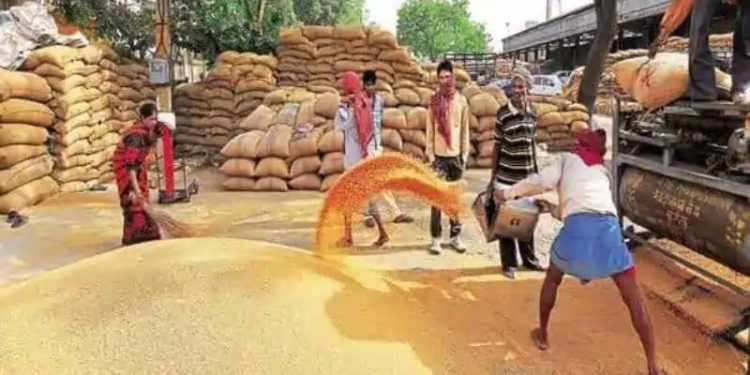Shivaji Sarkar
If wishes were horses, the ‘one India one farm market’ concept would have flown under then Prime Minister Atal Bihari Vajpayee 20 years ago. This time round, the Narendra Modi government’s move is good, but it’s not going to be easy. The changes in the Essential Commodities Act (ECA) and attempt to bypass the APMC under state governments through the farming produce trade and commerce (promotion of and facilitation) ordinance 2020 does have its pros and cons.
Agriculture minister Narendra Singh Tomar’s assertion that it will attract investment in the farm sector needs to be watched for whom does it benefit– the farmers or the large corporate and MNCs. The changes may well shackle the intended beneficiaries more with wholesale or retail chains. The ordinance has rightly assumed that there could be predatory takeovers and has banned any kind of sale, mortgage or leasing of land. Any recovery against land is also not possible.
The decriminalisation of the ECA is right to the extent that the businesses would now be difficult to be harassed by the policing and administrative agencies. It would help them stock required foodgrains or pulses. The danger is that if they falter, resort to hoarding and manipulate prices, the concession would be withdrawn. That is the catch. But foreign chains are exempt from the emergency clauses of calamity-like situation.
The ordinance is explicit. It says that installed capacity of value chain participant and the export demand of an exporter will remain exempted from such stock limit imposition so as to ensure that investments in agriculture are not hampered. The government expects foreign chains would enter the market in a big way and help its dream of inviting FDI into food items. Various multinationals are there for quite some time. The new law would help them have pan-India unfettered presence. Since they are financially well-off, it is feared that this atmanirbharta may displace traditional Khari Baoli-type markets and may cause disturbances. The Indian consumers may have to pay high prices during calamitous situations.
The Vajpayee government fully de-licensed dairy production (2002) and sugar industry (1998), made changes to allow BT cotton, introduced Kisan Credit Cards (KCC), an idea espoused by Sompal Shastri and was duly supported by then finance minister Yahswant Sinha despite opposition from BJP’s feeder organisations. It changed cotton production dynamics. Despite large number of farmer suicides today more than 95 per cent cotton cultivation is for Bt. India is estimated to have earned $67 billion from 2004 to 2017 from cotton exports, a mere $13 billion a year. Overall it is said that cotton farmers are having larger incomes. However, the euphoria of farmers didn’t last long due to crop failures, mounting debt, resistance against chemical and leading to suicides consuming the pesticides that could not kill the worms. The Green to Gene Revolution has not been that much of success though it has made the Monsanto-like firms richer.
The ECA amendments would ensure that cereals, pulses, oilseeds, edible oils, onion and potatoes be removed from list of essential commodities. This will remove fears of private investors of excessive regulatory interference in their business operations. The government expects that the freedom to produce, hold, move, distribute and supply will lead to harnessing of economies of scale and attract private sector/FDI into agriculture sector. It will help drive up investment in cold storages and modernisation of food supply chain.
The expectation that it would help drive up investment in cold storages and modernisation of food supply chains is high. It is likely to change the market dynamics and may not always be an easy process. The government hopes it would attract private sector investment and open up the global market to the farmer. But, it has ignored one aspect that no sooner Indian products in large volume reach global mandis, the prices would crash.
Another government-imposed restriction, on cash transaction, needs to be eased. When a farmer takes his produce to market, he faces a problem in getting his payment. The electronic payment gateways do no work everywhere. This delays payment. The government needs to allow farm produce sale through cash without any limit. If this is allowed, selling farm produce would be easier and the Indian market and retailers can thrive.
–INFA







































